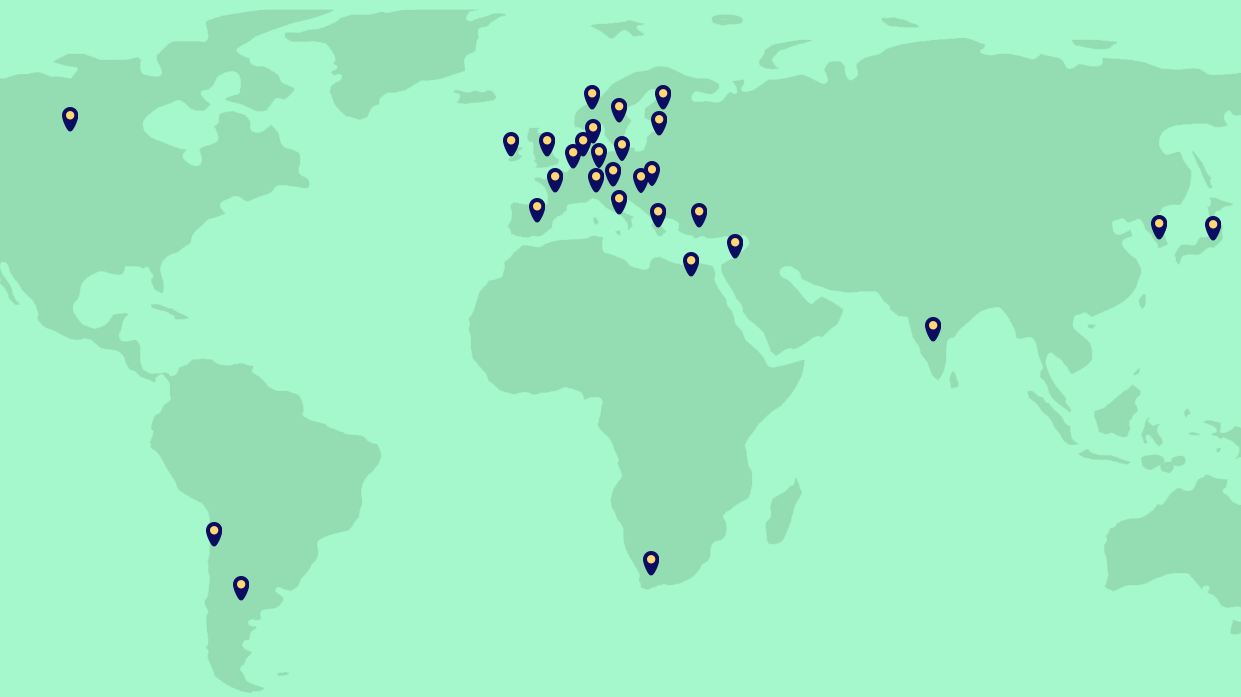The EUP OHAMR coordinates national public investments from the European Union and partner countries to support joint transnational calls based on the EUP OHAMR Strategic Research and Innovation Agenda (SRIA), seeking new knowledge and supporting solutions to decrease the burden of AMR with a One Health approach.
EUP OHAMR calls for proposals are organised by international, national or regional research and innovation funding organisations that have decided to fund a specific call, and the European Commission. The calls aim to enable researchers to collaborate across national and scientific borders to tackle the global challenge of AMR.
The total budget of a call is the sum of grants made available by the participating funding organisations, where each organisation will fund only scientists eligible to receive its grants (i.e. a Virtual Common Pot). Hence, applicants must ensure that the call includes a funder to which they are eligible to apply, and to adhere both to the specific regulations of their funding organisation and the general EUP OHAMR rules for participation.
The EUP OHAMR builds on the experiences and well-established networks and processes of the Joint Programming Initiative on Antimicrobial Resistance (JPIAMR). However, the EUP OHAMR extends to a broader and more integrative programme to further strengthen synergy and enable cross-sectoral and interdisciplinary research, including social sciences and economics, through a holistic One Health approach. In addition, the EUP OHAMR has stronger elements of innovation and uptake of solutions by industry, society and policy makers through reinforced engagement with stakeholders, as well as capacity strengthening and data facilitation.
Objectives
EUP OHAMR calls aim to fund proposals that address the following general objectives:
EUP OHAMR-funded projects should contribute to reducing the burden of AMR by closing knowledge gaps, discovering new drugs, developing diagnostics, and preventing the emergence and transmission of AMR. The funded projects are expected to have high impact on the translation of research into clinical practice, commercialisation of outputs, and policy uptake, in the near future.
The EUP OHAMR will also promote the inclusion of social sciences and implementation science in its R&I efforts to ensure that economic, geographical, social, behavioral and environmental contexts will be considered at all stages of the R&I planning and implementation.
EUP OHAMR-funded projects should combine scientific and interdisciplinary competences and data, enabling larger scale projects, avoiding duplication and fragmentation of AMR research and strengthening the European Research Area and the cooperation with non-European countries.
The output and outcomes generated from EUP OHAMR-funded R&I projects should be transformed into sustainable solutions available for uptake and translation for broad societal use and maximal impact through knowledge valorisation.
In addition, each call will be centered around the three EUP OHAMR focus areas and may also have specific objectives that proposals need to address.
The first EUP OHAMR call will be launched in November 2025.

Research call 2025
The first EUP OHAMR call will be within the focus area of providing innovative and cost-effective treatment options.

EUP OHAMR focus areas
Read more about the three EUP OHAMR focus areas.

JPIAMR (jpiamr.eu)
Link to another websiteThe JPIAMR has supported over 1900 researchers in 186 projects and networks with funding about 181.5 million Euro.